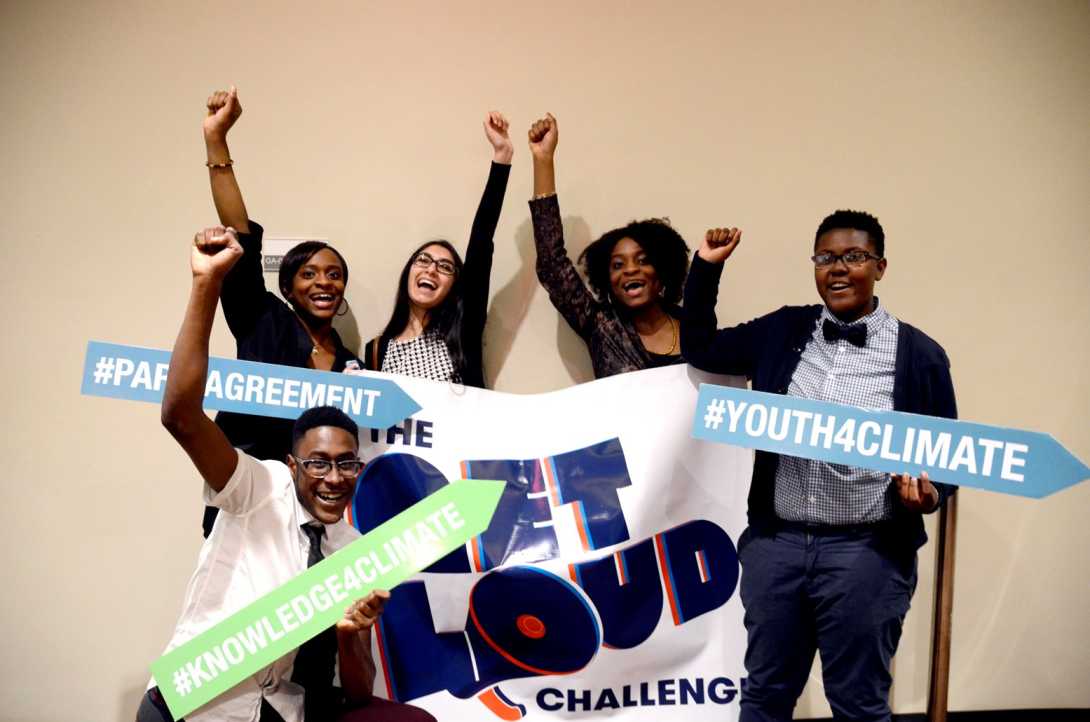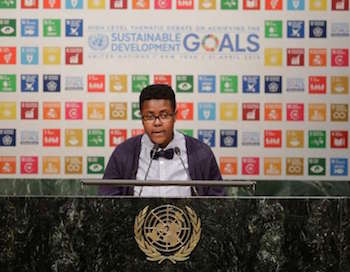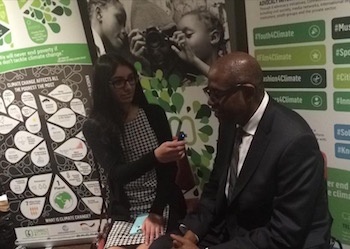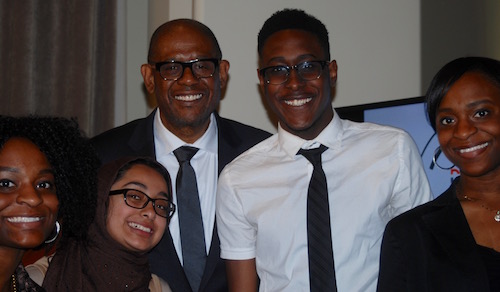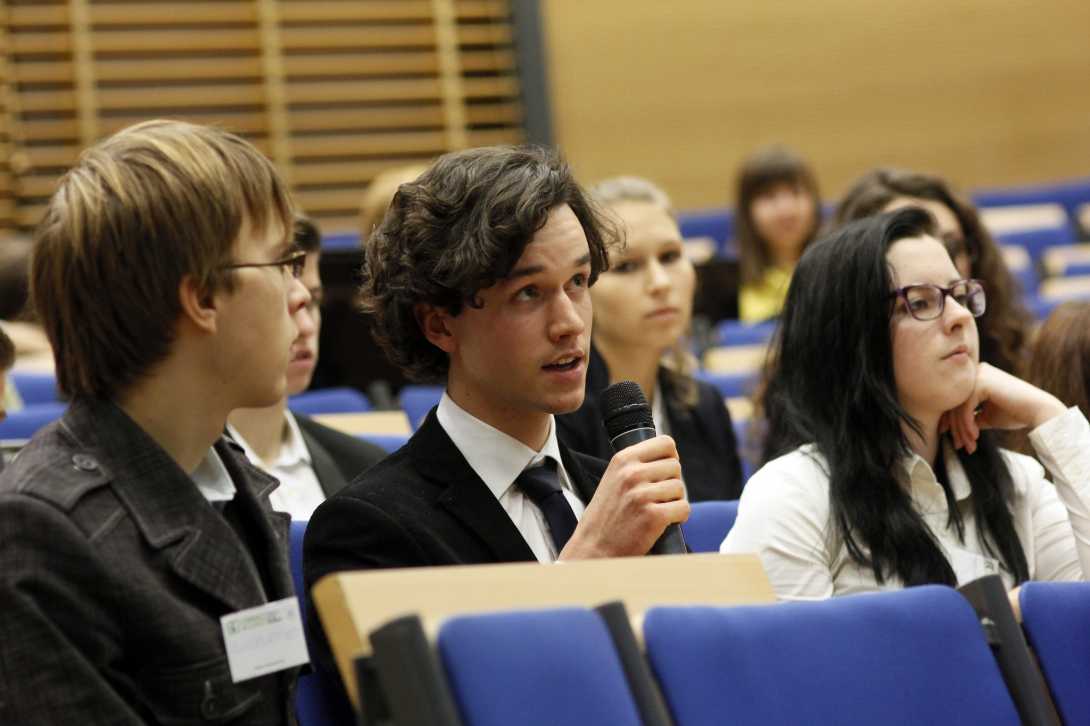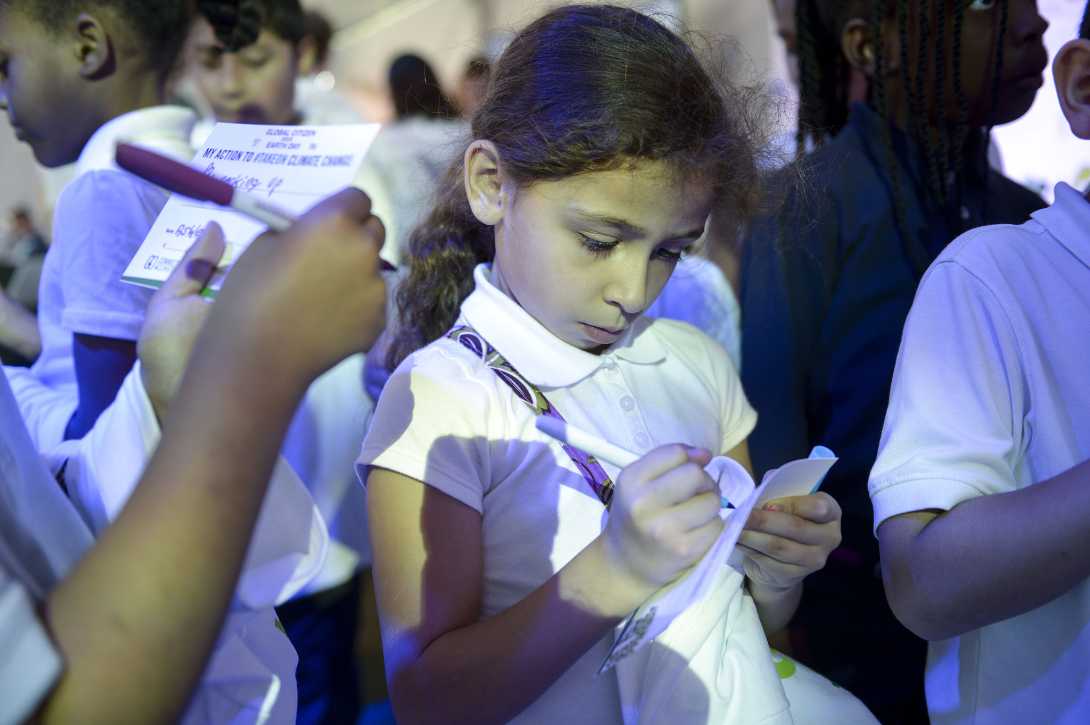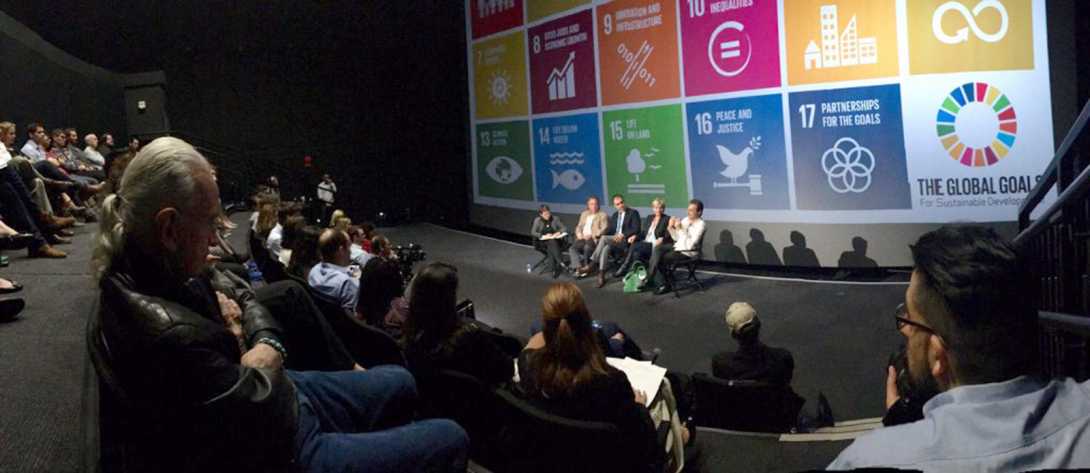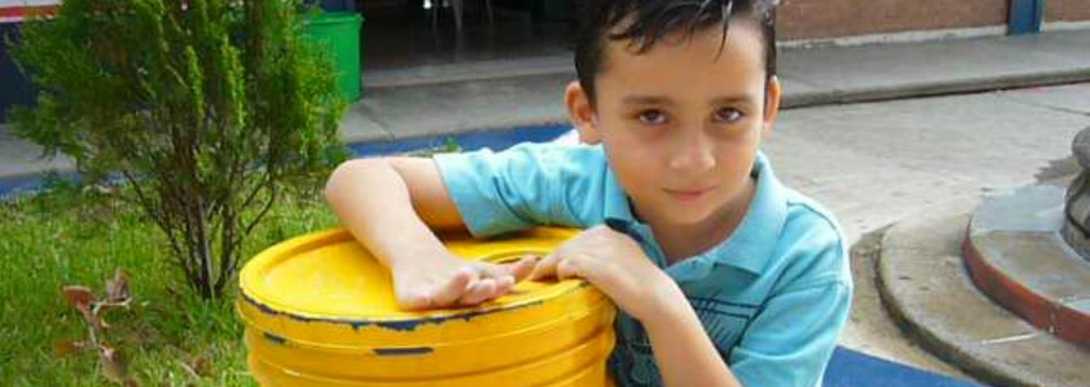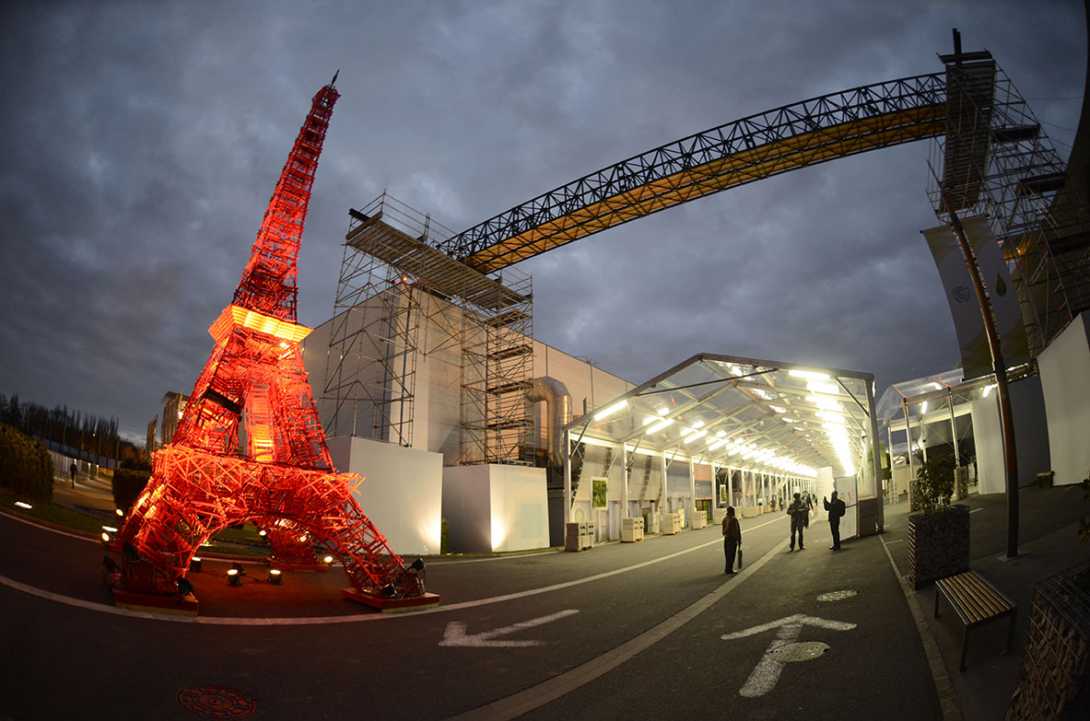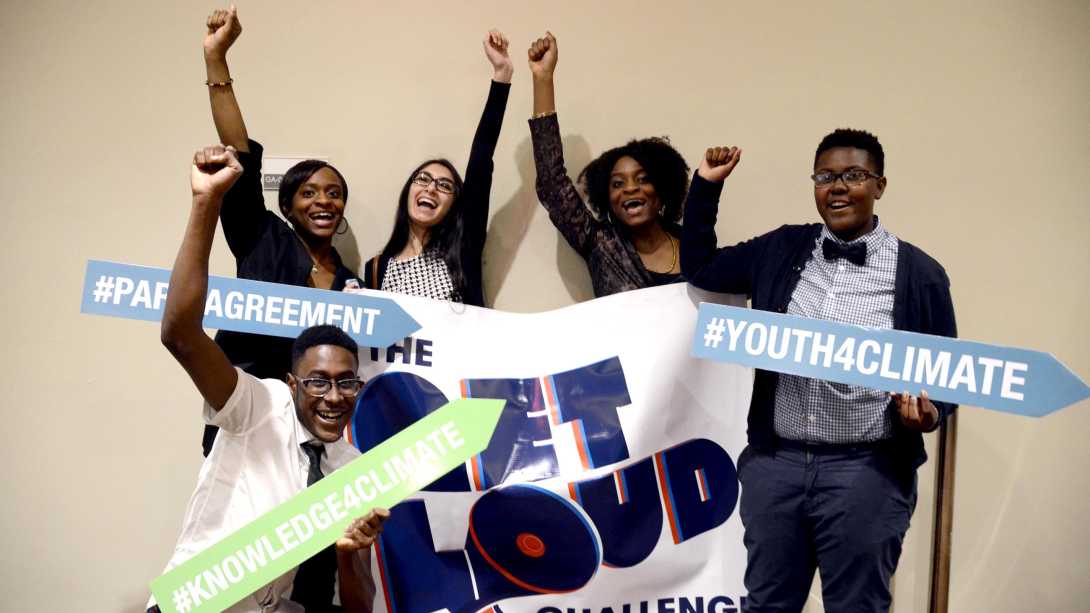
Last week, on Earth Day, history was written. Connect4Climate, the World Bank Group's global partnerhsip program, joined the world in celebrating the signing of the Paris Climate Change Agreement at the United Nations.
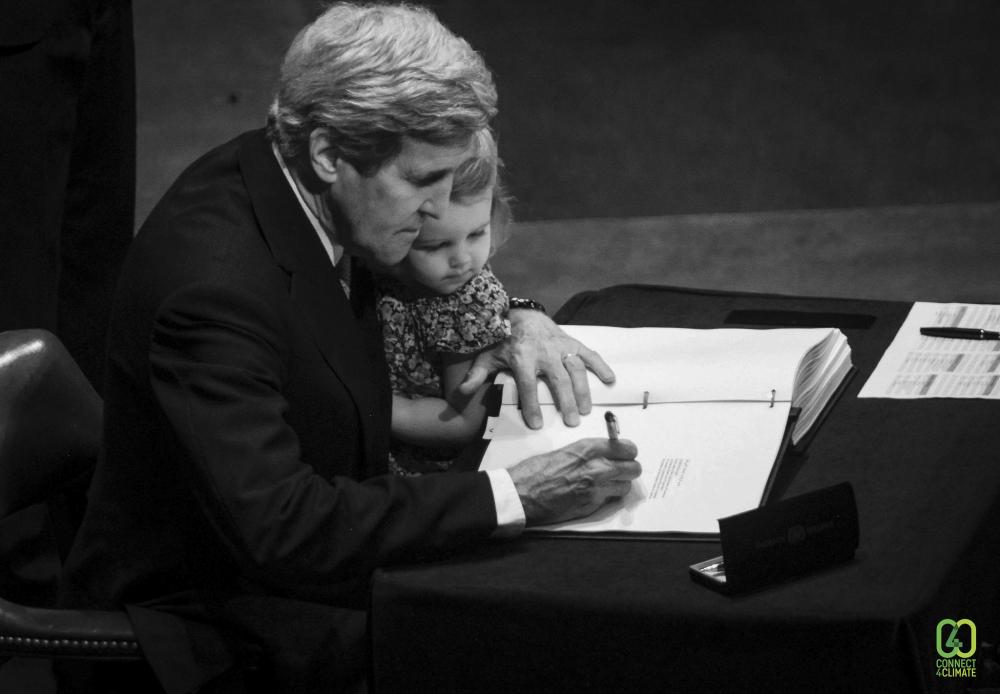
John Kerry at Paris Climate Change Agreement Signing Ceremony. Photo Credit: Leigh Vogel
World leaders from 175 Parties (174 countries and the European Union) came together at the United Nations to sign up to the Paris Climate Change Agreement. The signing ceremony far exceeded the historical record for first-day signatures to an international agreement.
Christiana Figueres, Executive Secretary of the UN Framework Convention on Climate Change (UNFCCC), said: “Today is a remarkable, record-breaking day in the history of international cooperation on climate change and a sustainable future for billions of people alive today and those to come.”
On the day there were moving speeches and incredible scenes with US Secretary of State John Kerry signing the agreement with his granddaughter, young leaders expressing hope and optimism and Leonardo DiCaprio speaking bold words of wisdom in support of climate action (See his full speech here).
"This is the body that can do all it's needed. The world is watching you." @LeoDiCaprio #ParisAgreement pic.twitter.com/vYx1pZa6hy
— Connect4Climate (@Connect4Climate) April 22, 2016
Along with the global leaders, 197 children representing the Parties that have adopted the Agreement joined. United Nations Secretary-General Ban Ki-moon urged nations to listen to their youth.
“We need to listen to young people and keep the promises made in Paris,” said the Secretary-General.
Connect4Climate was excited not only to witness the important event, but also to add the youth voice in support of world leaders who signed the Paris Agreement.
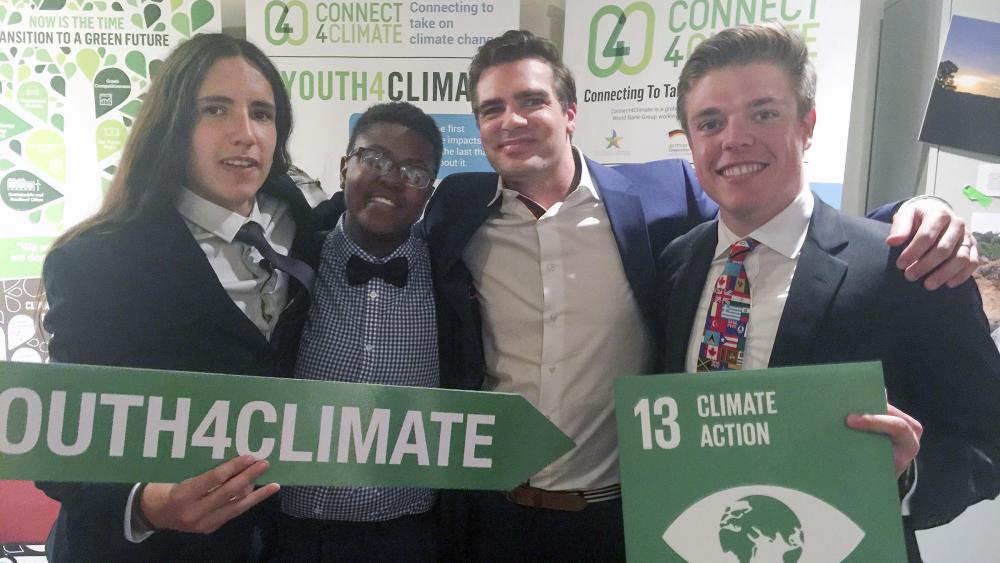
Xiuhtezcatl Martinez, Victoria Barrett, Max Thabiso Edkins and John Rutherford Seydel at the UN. Photo Credit: Leigh Vogel
In the United Nations Digital Media Zone, we worked with youth activists including Xiuhtezcatl Martinez of Earth Guardians and Victoria Barrett, a 17-year-old Honduran-American with roots in the Garifuna Indigenous culture and Alliance for Climate Education Action Fellow.
“We need every young person on the planet to join hands with us, to build a better future, for my generation, for future generations to come, to tackle climate change,” emphasized Xiuhtezcatl Martinez.
Connect4Climate worked with Alliance for Climate Education youth reporters, who lead interviews with celebrities and leaders including Actor Forest Whitaker, United Nations Youth Envoy Ahmad Alhendawi, Mogens Lykketoft, President of the United Nations General Assembly, Achim Steiner, United Nations Environment Programme (UNEP) Executive Director, John Roome, Senior Director, Climate Change, World Bank Group, Kathleen Rogers, President, Earth Day Network, and Rosemary Kalapurakal from United Nations Development Programme (UNDP).
Ahmad Alhendawi, United Nations Youth Envoy, highlighted: “Youth4Climate was a very important hashtag and movement leading up to create this momentum to get the Paris Agreement signed…We have to live in a more sustainable way and that is where I believe young people can continue this massive movement.”
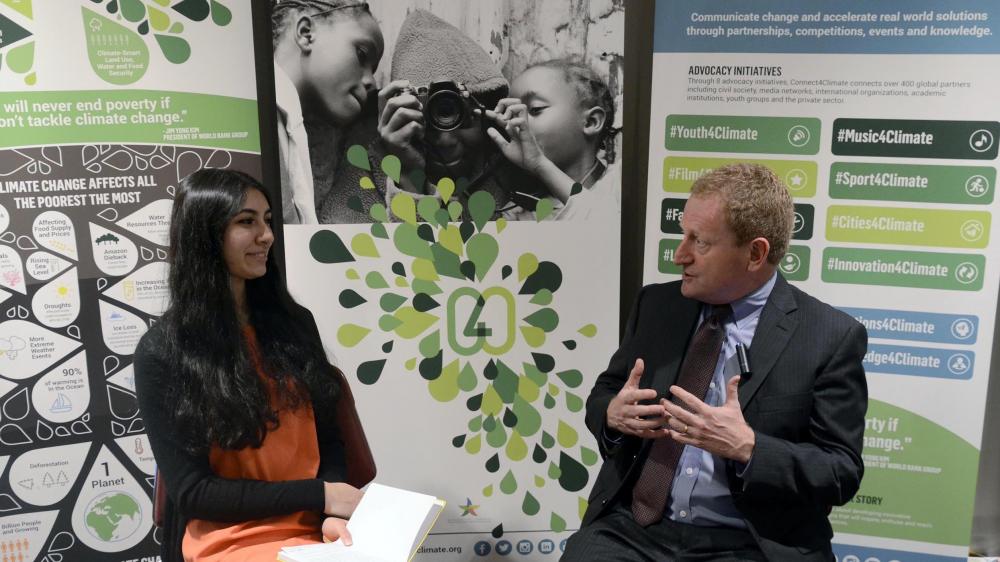
Dinaz Kureishy interviews John Roome, Senior Director, Climate Change, World Bank Group. Photo Credit: Max Thabiso Edkins
Forest Whitaker praised the role of youth in addressing climate change, saying, “the smallest actions sometimes can create the tipping point for other actions to occur.”
Comparing the role of young people in the movement for liberation in South Africa, John Roome emphasized youth for social mobilization and political involvement: “It was young people who moved the political debate forward, by coming out on the streets, by demonstrating, by making their voices known.”
On the day, Connect4Climate also presented our Virtual Reality video, March4Earth, to several high-profile world leaders, including Gian Luca Galletti, the Italian Minister for Environment, Land and Sea. We also ran a selfie station for participants to share their passion and energy in support of climate action. The winners of #Photo4Climate Instagram Challenge were also exhibited in the Digital Media Zone.
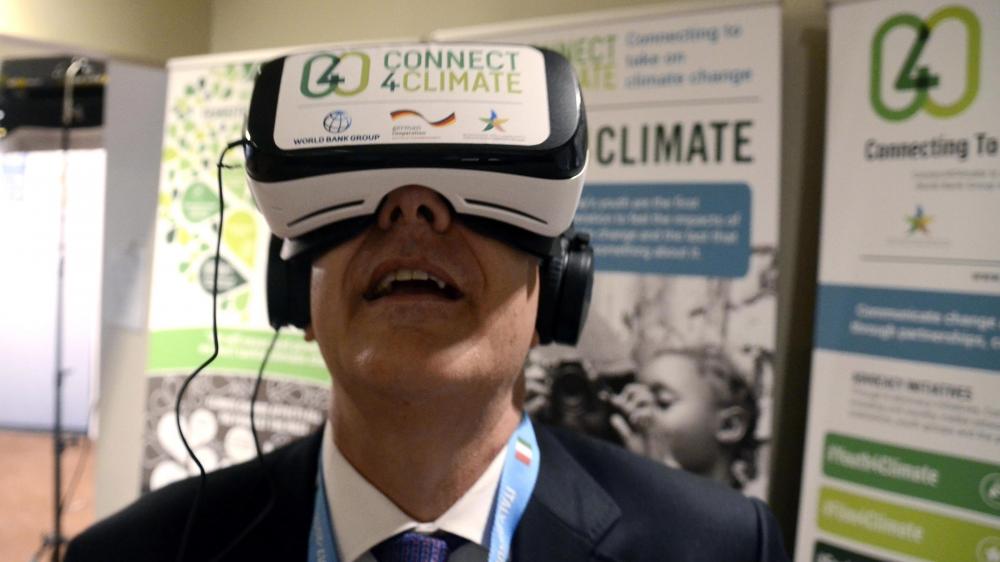
Gian Luca Galletti, Italian Minister for Environment, Land and Sea, watches Virtual Reality film March4Earth. Photo Credit: Max Thabiso Edkins
On such a historic day we again reflect on the power of youth and we thank our #Youth4Climate partners for their great support. It was truly remarkable the passion and commitment young people present to leaders calling for the preservation of our world for this and future generations. Youth will continue to remind policy makers that they are likely the last generation who will be able to do something about climate change.
“I think it should be a thing, to have kids voices at the UN, because this is our future.” said Xiuhtezcatl Martinez in a Youth4Climate interview with Victoria Barrett
